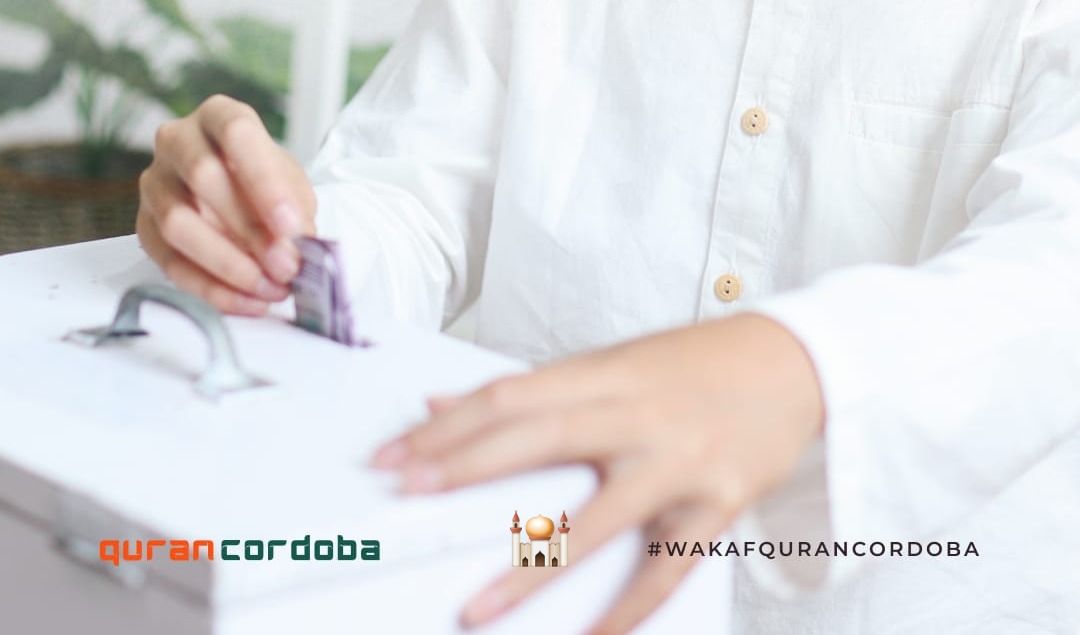Heri Mahbub
This is 8 virtues of sacrifice and doing good in everything, including when slaughtering sacrificial animals. In the month of Dzulhijjah, this treasure worship is the most important compared to other pious deeds. Check out the explanation in the following article.
.jpeg)
Kordoba Kordoba - Do good in all things including when slaughtering animals, including the Sunnah of the priority of sacrificing. In the hadith, from Syaddad bin Aus RA, Rasulullah sallallaahu 'alaihi wa sallam said,
Meaning: " Indeed, Allah requires doing good towards everything. If you want to kill, then kill in a good way. If you want to slaughter, then slaughter in a good way. You must sharpen the knife and please the animal that will be slaughtered ." (HR. Muslim)
The virtue of sacrifice is that when slaughtering, one must say "basmallah," meaning with the intention of saying "in the name of Allah." Quoting from the Ministry of Religion's interpretation of Al-Hajj verse 34, "We have prescribed the slaughter of sacrificial animals for every nation among the previous prophets to draw closer to Allah, so that they mention the name of Allah when slaughtering sacrificial animals, for the sustenance that Allah has bestowed upon them in the form of sacrificed livestock."
Meaning: " We have prescribed slaughter (sacrifice) for every people so that they say the name of Allah over the livestock that He has bestowed upon them. Your God is God Almighty. So, surrender to Him. Convey (Prophet Muhammad) good news to those who are humble and obedient (to Allah)" (QS. Al-hajj, 22: 34)
So be firm in your words, thoughts and feelings that your God is the Almighty Allah, He has no partners, therefore surrender to Him with fervent prayer. And convey, O Muhammad, the good news to those who submit obediently to Allah that they will obtain paradise.
ALSO READ: History of Qurban from the time of Prophet Ibrahim to Prophet Muhammad SAW
The sacrifice of sacrifice has many fadhilah. These are the 8 virtues of sacrificing that we quoted from KH Ahmad Syahrin T. in his study, as follows:
Rasulullah sallallaahu'alaihi Wasallam said to his daughter, Fatimah:
"O Fatimah, stand and watch your slaughtered animal. Indeed, you are forgiven at the first drop of blood for the sins you committed. And read: Verily, my prayer, my sacrifice, my life and my death are only for Allah Ta'ala, the Rabb of the universe." (HR. Abu Daud)
Allah subhanahu wata'ala has said:
"The flesh of camels and their blood cannot attain Allah's (pleasure), but your piety can achieve it." (QS: Al Hajj: 37)
The Prophet sallallaahu'alaihi wasallam said:
"Whoever finds himself in a free state and does not make a sacrifice, then let him not approach our place of Eid prayer." (HR. Ahmad and Ibnu Majah)
Allah subhanahu wata'ala says:
"So establish prayer for your Lord; and sacrifice." (QS. Al Kautsar: 2)
When discussing the verse above, some scholars say: "The most noble form of worship of wealth is slaughtering a sacrifice, while the most important form of worship of the body is prayer..."
4. Qurbani Animals Will Be Witnesses on the Day of Judgment
The Prophet sallallaahu'alaihi wasallam said:
"Indeed, the sacrificial animal will come on the Day of Resurrection (as a witness) with its horns, fur, and hooves. And indeed, its blood is in a place with Allah before it flows on the ground. Therefore, make yourself happy with it." (Narrated by Tirmidhi)
The amount of reward that the doer will get from this worship is likened to the amount of hair from a slaughtered animal.
This is an illustration of how great the rewards are from sacrificing, as stated by the Prophet sallallaahu'alaihi Wasallam in a hadith.
"For each piece of feather there will be (a reward) one good thing." (HR. Ahmad)
6. Worship that is Most Loved by Allah on Eid
The Prophet sallallaahu'alaihi wasallam said:
"There is no deed of Adam's children and grandchildren on the holiday of sacrifice that Allah prefers more than slaughtering sacrificial animals, in fact on the Day of Judgment these animals will come complete with horns, hooves and feathers. Indeed, their blood will reach Allah as a sacrifice wherever the animal is slaughtered before its blood reaches the ground, so be willing to slaughter it." (HR. Ibn Majah)
"That is (Allah's command). And whoever glorifies the syi'ar of Allah, then indeed it arises from piety of the heart." (QS. Al Hajj: 32)
"And We have made the camels for you part of the message of Allah's religion, you will gain much goodness from them. So say the name of Allah (when you are going to slaughter them) while standing (and the legs are tied). Then when they fall down (die), then eat some of them and feed those who are satisfied with what they have (not begging) and those who ask. Thus We bowed (the camels) to you, so that you will be grateful. (QS. Al Hajj: 36)
Friend Ali bin Abi Talib radhiyallahu'anhu said:
"The Messenger of Allah ordered me to take care of his sacrificial animal, to distribute its meat, skin and clothes to the poor, and I was not allowed to give anything from the sacrificial animal (as wages) to the slaughterer." (Narrated by Abu Dawud)
ALSO READ: Practices of the month of Dzulhijjah and the prohibition on cutting hair and nails for those who sacrifice
That's why scholars say that in the month of Dhul Hijjah, qurban is more virtuous than any other form of charity, even if the value is greater. These are the eight virtues of sacrifice and good deeds.
May Allah make things easy for us and give us the strength to always do good deeds, achieve the virtue of sacrifice, and be sincere in our sacrifices.
And Allah knows best.

